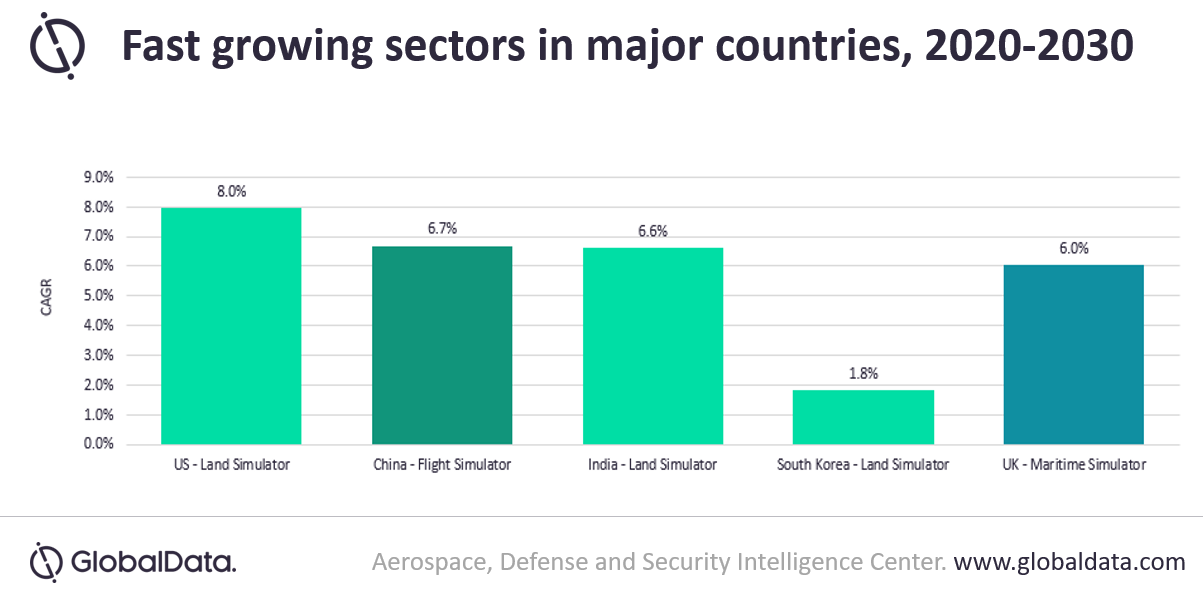10 Dec, 2020 Military training prioritizes safety as simulation systems market grows 55% by 2030, says GlobalData
Posted in Aerospace, Defense & SecurityMost militaries across the globe are transitioning their training to simulators to address personal safety challenges. In fact, the global military simulator systems market is anticipated to grow by 55% in 2030, as compared to the current year’s market value. The modernization of armed forces and the induction of increasingly sophisticated advanced platforms will drive the need for simulation even further in the near future, according to GlobalData, a leading data and analytics company.
The company’s latest report, ‘The Global Military Simulator Systems Market 2020-2030’, reveals that market growth is anticipated to be dominated by the land simulator segment. This is the fast-growing segment in major countries ranging from the US, at 8% growth, to India (6.6%) and South Korea (1.8%). Defense departments across various countries are also anticipated to invest heavily in the procurement of rotorcraft, aircraft and unmanned aerial vehicles (UAVs) during 2020-2030, which further increases the need for simulators.

Samrat Adepu, Defense Analyst at GlobalData, commented: “A live training experience is not always safe when it comes to advanced and expensive platforms or weapons. Simulation software offers a realistic and immersive environment to develop decision-making skills without risk of injury or damage to trainees or equipment. These systems are evolving at a rapid pace and are enabling the suppliers to create synthetic environments that would otherwise be difficult to imitate in live training exercises.
“Simulator-based training cannot substitute the need for physical training with actual military platforms, however, simulators have become a crucial steppingstone for troops to hone their skills while facilitating self-learning, remote guidance by instructors and effective progress tracking. These features of simulator-based training have proved advantageous – especially during the COVID-19 pandemic as social-distancing norms are practiced everywhere.”
Most companies are developing training solutions that includes elements of live, virtual, and constructive simulated environments with the help of emerging technologies such as augmented reality (AR), virtual reality (VR), artificial intelligence (AI), and big data analytics.
Samrat continues: “The countries with limited defense budgets are finding simulator-based training to be a cost-effective solution and enables them to ensure that their armed forces are trained well in various combat situations and therefore can be readily deployable against enemy forces to defend their interests.”
